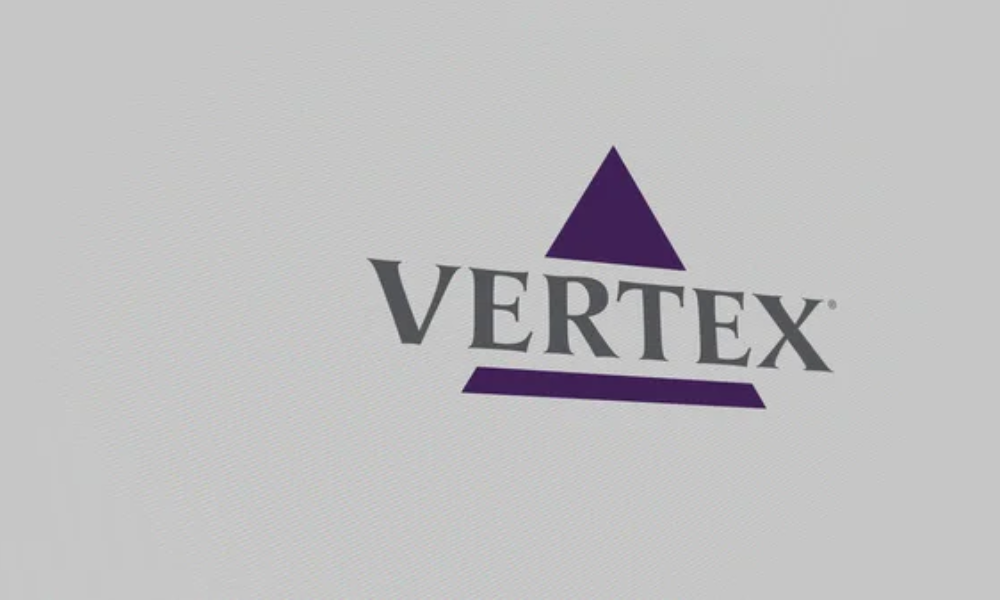“Don’t put all your eggs in one basket” is a proverb that warns against investing all of your resources in a single source. If something were to happen to that basket, you’d lose all of your eggs.
To mitigate that risk, it’s wise to spread out your assets. When applied to investing, this proverb directly speaks to the value of portfolio diversification.
Diversification is an investment technique that aims to increase returns and decrease overall risk by allocating capital across investment types and industries.
Whether you’re an aspiring portfolio manager or an investor curious about how your portfolio is constructed, it’s crucial to understand diversification’s value in the investment world.
Why Build A Diversified Portfolio?
Portfolio diversification is based on the concept of complementarity, which describes the degree to which two or more assets move in opposite directions in specific environments or scenarios.
By selecting complementary investments, you can decrease a portfolio’s risk profile, regardless of the risk profiles of the investments it comprises.

For example, imagine you’re a portfolio manager and choose to invest in two stocks: Investment A and Investment B. Investment A is in a package delivery company, and Investment B is in a videoconferencing platform company.
Even if both investments are highly risky, the fact that they’re not in closely related industries decreases the portfolio’s overall risk.
For instance, if there were a gas shortage and the company couldn’t deliver packages, Investment A’s stock price might drop.
Yet, Investment B’s stock price could increase, as videoconferencing wouldn’t be negatively impacted by a gas shortage.
The gas shortage might even cause some people to work from home and purchase the videoconferencing platform, which could result in Investment B’s performance being negatively correlated with Investment A.
You’re effectively putting your “eggs” (capital) in separate “baskets” (investments) to spread out risk.
What Is Sustainable Investing?
There are three primary strategies for portfolio diversification, and a wise portfolio manager considers all three.
-
Individual Asset Diversification
The first strategy is to invest in an array of assets within an asset class. This can be as simple as buying the market index—the S&P 500 or the Russell 2000—to ensure a variety of high- and low-risk stocks across industries are equally represented in your portfolio.
It can also mean consciously investing in industries that seem complementary to one another.
-
International Market Diversification
The second strategy is to look abroad. If your country’s market were to perform poorly, it’s useful to have some investments in international markets to mitigate risk and balance your portfolio.
Keep in mind that other countries may have different rules, regulations, and processes for investing than your country does.
-
Asset Class Diversification
The third strategy is to diversify by investing across asset classes. These can include traditional investments—such as stocks, bonds, and cash—which operate in the public market, and alternative investments, which primarily operate in the private market and are largely unregulated.
What are Alternative Investments?
Alternative investments are any investments besides stocks, bonds, and cash. Alternatives are relatively illiquid—meaning they can’t be easily converted into cash—and unregulated by the United States Securities and Exchange Commission (SEC).
Some of the most common types of alternative investments include:
Hedge Funds: Is a pool of the capital of many investors that is taken and invested across various securities with the intention of managing risk to outperform the market’s rate of return.
Private Equity: The investment of capital in private companies and encompasses venture capital, growth equity, and buyouts.
Real Estate: The investment of capital in residential, commercial, or retail properties, either individually or through a real estate venture fund or investment trust. Debt investing, in which capital is invested in the debt of a private company and can be distressed or private.
Commodities: Capital is invested in natural resources, such as oil, agricultural products, or timber.
Collectibles: Collectibles are items such as rare wines, cars, and baseball cards that are purchased with the intention of selling them when their value appreciates.
Structured products: This form of investment involves fixed-income markets and derivatives.
Alternative investments: Alternative investments are a wise addition to portfolios because they tend to have a low correlation with traditional assets. This means that if the stock market is doing poorly, some of your alternative investments could perform well. Because these investments are separate from the public market, they present a great opportunity to diversify your portfolio.
Factors To Consider For Diversified Portfolios
The alternative investment asset class contains a variety of asset types, each with unique characteristics. How do you know which are the best fit for your portfolio?
Several factors can help you decide. Compare each alternative type to the traditional investment types in your portfolio to ensure diversification.
Time Horizon & Liquidity
Time horizon is the amount of time an investor can expect to hold a specific investment. Time horizons vary greatly, ranging from a few hours to a few decades.
Liquidity is tied to time horizon; if an investment has a long time horizon, it’s considered illiquid until it reaches maturity.
Traditional investments (stocks, bonds, and cash) have no set time horizon and are fully liquid. Investors can cash in their investments whenever they decide to.
Alternative investments are relatively illiquid and have much longer time horizons. For some alternatives, time horizons are set at the signing of a contract; for instance, when someone becomes a limited partner at a private equity firm. Others are long simply because they’re difficult to sell or require time to accrue value.
Risks & Potential Threats
Spreading out risk is one of the key goals of diversification, and alternative investments provide varying levels of risk to consider.
Returning to the concept of time horizons, investment options with longer time horizons are typically less risky because the market has time to correct itself should a downturn occur.
If, however, your investment is a physical asset—such as a building, natural resource, or collectible—a longer time horizon means more time for the asset to be damaged, stolen, or lost, which adds additional risk.
Using Alternative Investments to Diversify Portfolio
Alternative investments are key to a strong, diversified portfolio. Understanding the time horizons, liquidity, industry and market trends, and risk level of each type can help you select alternatives that mitigate your portfolio’s overall risk and increase returns.
Gaining a deeper understanding of each alternative investment type can serve you well as an aspiring portfolio manager.

With careful consideration and strategic planning, building a diversified portfolio across asset classes can enhance your investment returns while reducing overall risk.
By incorporating alternative investments into your portfolio mix, you can access new opportunities and potentially boost your long-term investment performance.
DISCLAIMER
You should read and understand this disclaimer in its entirety before joining or viewing the website or email/blog list of SmallCapStocks.com (the “Publisher”). The information (collectively the “Advertisement”) disseminated by email, text or other method by the Publisher including this publication is a paid commercial advertisement and should not be relied upon for making an investment decision or any other purpose. The Publisher is engaged in the business of marketing and advertising the securities of publicly traded companies in exchange for compensation. The track record, gains, upside, and/or losses mentioned in the Advertisement, if any, should not be considered as true or accurate or be the basis for an investment. The Publisher does not verify the accuracy or completeness of any information included in the Advertisement. While the Publisher does not charge for the SMS service, standard carrier message and data rates may apply. To unsubscribe from receiving promotional text messages to your phone sent via an autodialer, using your phone reply to the sender’s phone number with the word STOP or HELP for help.
The Advertisement is not a solicitation or recommendation to buy securities of the advertised company. An offer to buy or sell securities can be made only by a disclosure document that complies with applicable securities laws and only in the states or other jurisdictions in which the security is eligible for sale. The Advertisement is not a disclosure document. The Advertisement is only a favorable snapshot of unverified information about the advertised company. An investor considering purchasing the securities, should always do so only with the assistance of his legal, tax and investment advisors. Investors should review with his or her investment advisor, tax advisor or attorney, if and to the extent available, any information concerning a potential investment at the web sites of the U.S. Securities and Exchange Commission (the "SEC") at www.sec.gov; the Financial Industry Regulatory Authority (the "FINRA") at www.FINRA.org, and relevant State Securities Administrator website and the OTC Markets website at www.otcmarkets.com. The Publisher cautions investors to read the SEC advisory to investors concerning Internet Stock Fraud at www.sec.gov/consumer/cyberfr.htm, as well as related information published by the FINRA on how to invest carefully. Investors are responsible for verifying all information in the Advertisement. As an advertiser, we do not verify any information we publish. The Advertisement should not be considered true or complete.
The Publisher does not offer investment advice or analysis, and the Publisher further urges you to consult your own independent tax, business, financial and investment advisors concerning any investment you make in securities particularly those quoted on the OTC Markets. Investing in securities is highly speculative and carries an extremely high degree of risk. You could lose your entire investment if you invest in any company mentioned in the Advertisement. You acknowledge that we are not an investment advisory service, a broker-dealer or an investment adviser and we are not qualified to act as such. You acknowledge that you will consult with your own independent, tax, financial and/or legal advisers regarding any decisions as to any company mentioned here. We have not determined if the Advertisement is accurate, correct or truthful. The Advertisement is compiled from publicly available information, which include, but are not limited to, no cost online research, magazines, newspapers, reports filed with the SEC or information furnished by way of press releases. Because all information relied upon by us in preparing an advertisement about an issuer comes from a public source, it is not reliable, and you should not assume it is accurate or complete.
By your subscription to our profiles, the viewing of this profile and/or use of our website, you have agreed and acknowledged the terms of our full disclaimer and privacy policy which can be viewed at the following link: www.SmallCapStocks.com/Disclaimer and www.SmallCapStocks.com/Privacy-Policy
By accepting the Advertisement, you agree and acknowledge that any hyperlinks to the website of (1) a client company, (2) the party issuing or preparing the information for the company, or (3) other information contained in the Advertisement is provided only for your reference and convenience. The advertiser is not responsible for the accuracy or reliability of these external sites, nor is it responsible for the content, opinions, products or other materials on external sites or information sources. If you use, act upon or make decisions in reliance on information contained in any disseminated report/release or any hyperlink, you do so at your own risk and agree to hold us, our officers, directors, shareholders, affiliates and agents harmless. You acknowledge that you are not relying on the Publisher, and we are not liable for, any actions taken by you based on any information contained in any disseminated email or hyperlink.












